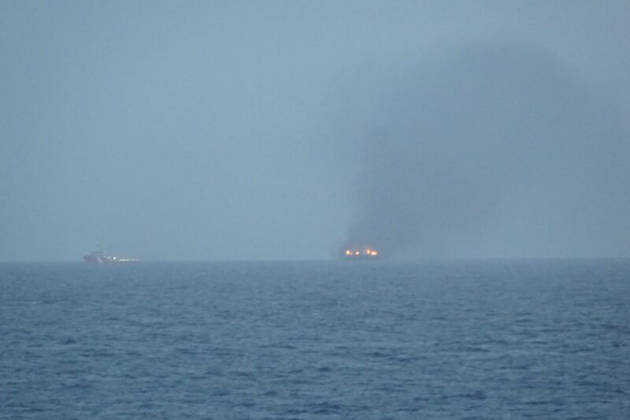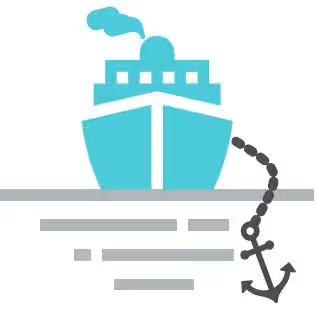Greek Oil Tanker MT SOUNION Towed to Safety After Houthi Attack: Ongoing Risks and Salvage Efforts
The Greek-registered oil tanker MT SOUNION, which suffered a devastating attack by Houthi militants on August 21 while transiting through the Red Sea, has been successfully towed to a safer location, marking a significant milestone in a challenging salvage operation. The tanker, which was carrying approximately 1 million barrels of crude oil, was set ablaze by the militants, leading to a critical situation that required immediate action.
Despite the successful towing, exclusive photos obtained on September 17 show that flames are still visible from the tanker. The vessel was moved to a position approximately 81 kilometers offshore Eritrea in the Red Sea, with the operation being conducted under the protection of EU-led Operation APSIDES. According to Operation APSIDES, the tow was completed without any oil spill, which was a key concern given the potential environmental impact of such an incident.

The next phase of the salvage operation will involve transferring the cargo from the SOUNION. Sources suggest that Saudi Arabia is expected to assist with this process. The operation will require careful management to prevent any further environmental damage, as the potential loss of the vessel could lead to one of the largest tanker oil spills in history. This is especially concerning given the region’s current instability, exacerbated by ongoing Houthi attacks.
Greek-flagged tanker MV SOUNION spotted TODAY on the Red Sea 81 km offshore Eritrea at
17.1265,39.8073
Still on fire. Several vessels around her indicate going on salvage ops. pic.twitter.com/vq33Eb3lwp
— Tom Bike (@tom_bike) September 17, 2024
The recent attack on the MT SOUNION is part of a broader pattern of aggressive actions by the Houthi rebels, who have targeted more than 80 commercial ships in the Red Sea and Gulf of Aden since November 2023. These attacks are reportedly motivated by solidarity with Palestinians in the Israel-Gaza conflict. The Houthi actions have led to significant maritime disruptions, including the sinking of two vessels, the deaths of four seafarers, and the ongoing captivity of the ship Galaxy Leader and its crew.
The situation remains volatile, with environmental and maritime security concerns continuing to be a major focus. The salvage operation’s success in mitigating immediate risks is a critical step, but the broader implications of these attacks highlight the ongoing threats faced by commercial shipping in the region.

